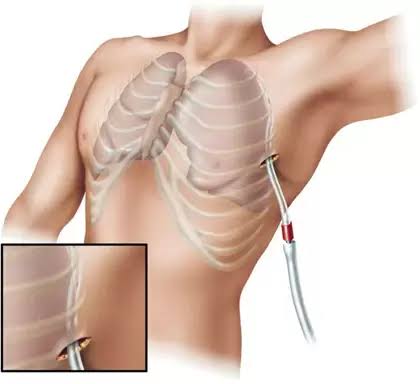
Thoracoscopy (Pleuroscopy) – A Minimally Invasive Lung Procedure
Expert Diagnosis & Treatment for Pleural Conditions
Thoracoscopy, also known as pleuroscopy, is a minimally invasive diagnostic and therapeutic procedure used to examine the pleural cavity (the space around the lungs). A small incision is made in the chest wall, allowing a thin, flexible camera (thoracoscope) to provide a direct view of the pleura and lungs.
Who Needs a Thoracoscopy?
- ✔ Unexplained pleural effusions – Fluid accumulation around the lungs, which may be caused by infections, tuberculosis, or cancer.
- ✔ Pleural thickening or nodules – Suspicious growths or scarring that require a biopsy.
- ✔ Recurrent pneumothorax (collapsed lung) – To evaluate lung damage and perform pleurodesis (a procedure to prevent lung collapse).
- ✔ Suspected pleural malignancies – Diagnosing lung-related cancers like mesothelioma.
Benefits of Thoracoscopy:
- ✔ Minimally invasive – No need for open surgery.
- ✔ High diagnostic accuracy – Direct visualization and biopsy of lung tissue.
- ✔ Shorter recovery time – Patients typically recover faster compared to traditional open surgery.
- ✔ Therapeutic applications – Can be used for pleurodesis to prevent fluid buildup.
Get expert diagnosis and treatment with minimally invasive thoracoscopy. Book an appointment today!